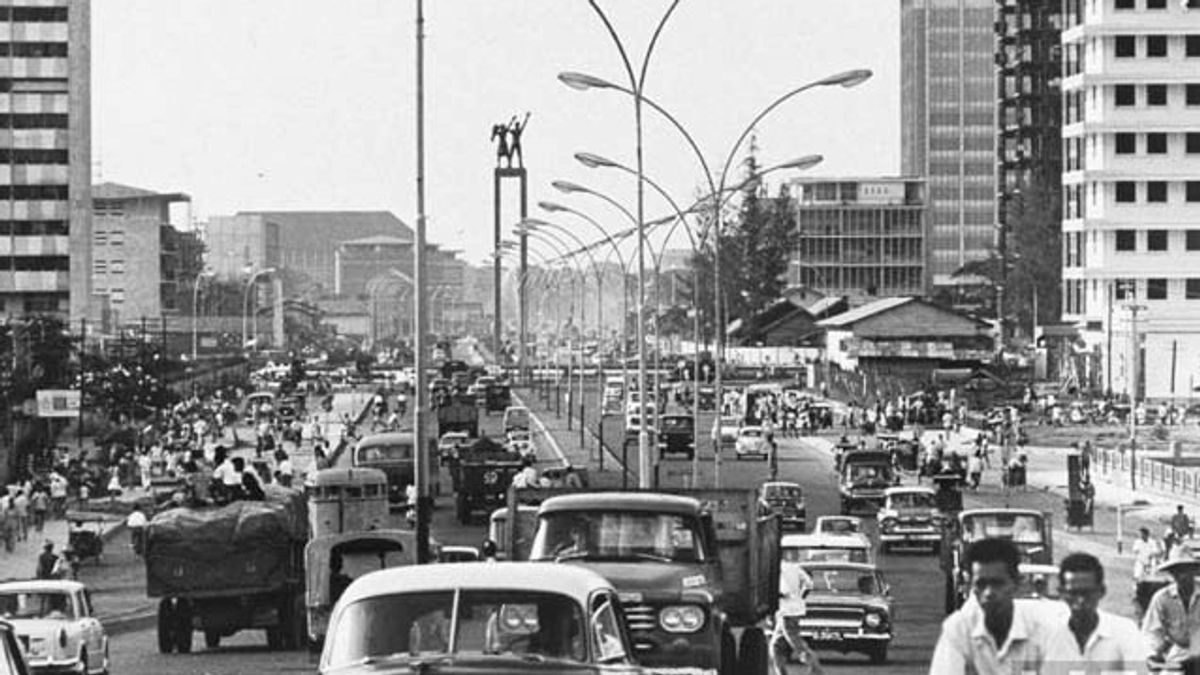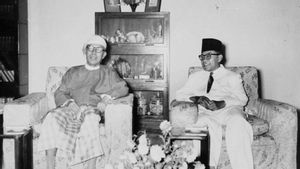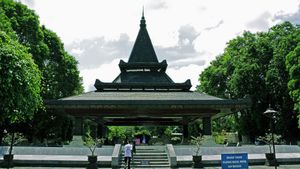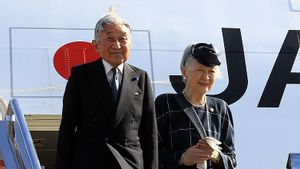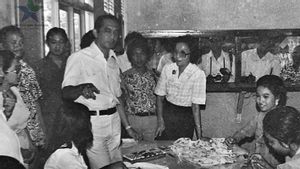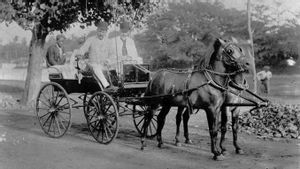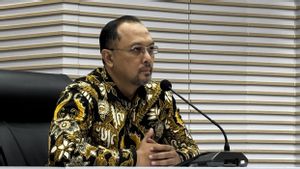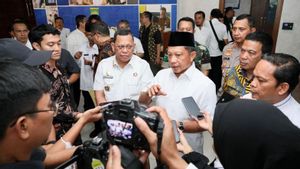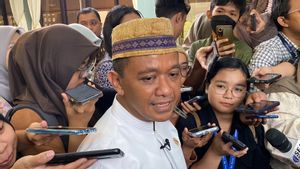JAKARTA History today, 59 years ago, June 22, 1964, President Soekarno announced that Jakarta will remain the capital city of the Republic of Indonesia. The decision was taken because of the large historical value contained by Jakarta. From places of the Youth Pledge to the Proclamation of Indonesian Independence.
Previously, the position of Jakarta as the center of government had taken place from the Dutch colonial era. Indonesia continues the narrative. However, the Revolutionary War made Yogyakarta the new capital city of Indonesia.
The proclamation of Indonesia's independence brings new hope. The Pledge was able to break the chain of colonialism. The archipelago also greeted him with great fanfare. However, the Dutch did not just let Indonesia be independent.
The plan to colonize Indonesia is again perpetuated. They tried to ride British allies to colonize Indonesia twice. The advantages of weaponry and funds are the key to Dutch confidence. They even predict that it will win easily.
Far from fire. The prediction missed. Indonesian independence fighters also fought fiercely. The Dutch also received heavy resistance. However, open war was not the option of the Dutch to come out victorious.
They tried to perpetuate terror to the nation's leaders. Soekarno and Sutan Sjahrir once felt their lives threatened by terror. This condition made all national figures agree to immediately transfer power to Yogyakarta.
Everything is because Jakarta is considered no longer safe. This is because the soldiers of the Dutch East Indies Civil Government (NICA) are everywhere. The power of attorney then moved the capital city from Jakarta to Yogyakarta in 1946.
In the evening of January 3, 1946 I told the ministers, guards, and loyal assistants: the position of government must be moved to an area free from Dutch disturbance so that we can establish a republican fort. Yogyakarta, or popularly known as Yogya, meets this need. Yogyakarta is also the center of Java.
"Decisions have been taken. We will move the capital tomorrow night. No one is allowed to bring gifts, I remind you. Neither do I. There is no time to slap at household furniture or move property. In addition, you are near me, so brothers and sisters are always monitored, "Soekarno's story as written by Cindy Adams in the book Bung Karno: Connecting the Tongue of the Indonesian People (2014).
The Center for Power moved to Yogyakarta for only a few years. Because, after the Dutch recognized Indonesia's sovereignty in the plenary manner in 1949, the Center for Power was again transferred to Jakarta. Back to Jakarta's status as the State Capital in fact presents pros and cons.
Many think that Jakarta is not very suitable as the capital city of the country. Jakarta is too crowded and often flooded, he said. The narrative of the capital city moving to West Java to Kalimantan also surfaced. However, Bung Karno immediately took a stand. He tried to stop all debates regarding the issue of moving the capital city.
He firmly determined that Jakarta will remain the capital city of Indonesia on June 22, 1964. He emphasized this when he had the opportunity to give a speech on Jakarta's 437th Birthday. For him, Jakarta as the capital city is already the most efficient choice. Moreover, Jakarta excels historically compared to other cities in Indonesia.
Soekarno finally decided that Jakarta would still be the location he chose to become the capital city of Indonesia. In Jakarta's 437th birthday speech, June 22, 1964, he emphasized his choice because according to him, Jakarta was very efficient. Since the capital returned from Yogyakarta to Jakarta, everything according to Soekarno has gone well.
He also considers the name Jakarta to be widespread everywhere. More than that, Sukarno really appreciates the historical aspects of Jakarta which is the location of some of the most important events in Indonesia's history, ranging from the events of the Youth Pledge, the Proclamation of Independence, Trikora or three People's Commands to Dwikora (Dwi or two People's Commands), and the spirit of the people of Jakarta who are revolutionary and burning, "explained Hikmat Budiman in the book Sudah Senja in Jakarta (2020).
另请阅读:
The English, Chinese, Japanese, Arabic, and French versions are automatically generated by the AI. So there may still be inaccuracies in translating, please always see Indonesian as our main language. (system supported by DigitalSiber.id)
